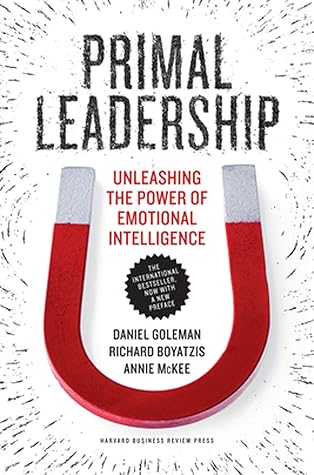More on this book
Community
Kindle Notes & Highlights
Started reading
July 17, 2019
institutions that endure thrive not because of one leader’s charisma, but because they cultivate leadership throughout the system.
four domains—self-awareness, self-management, social awareness, and relationship management—with
These EI competencies are not innate talents, but learned abilities, each of which has a unique contribution to making leaders more resonant, and therefore more effective.
Emotional Intelligence Domains and Associated Competencies (see Appendix B for details)
SOCIAL COMPETENCE: These capabilities determine how we manage relationships.
Conversely, a person lacking self-awareness will likely make decisions that trigger inner turmoil by treading on buried values. “The money looked good so I signed on,”
Wherever people gravitate within their work role indicates where their real pleasure lies—and that pleasure is itself motivating.
no external motivators can get people to perform at their absolute best.
Rather, empathy means taking employees’ feelings into thoughtful consideration and then making intelligent
decisions that work those feelings into the response.
And, most crucially, empathy makes resonance possible; lacking empathy, leaders act in wa...
This highlight has been truncated due to consecutive passage length restrictions.
Accordingly, empathy is key to retaining talent.
Finally, in the growing global economy, empathy is a critical skill for both getting along with diverse workmates
Managing relationships skillfully boils down to handling other people’s emotions.
This, in turn, demands that leaders be aware of their own emotions and attuned with empathy to the people they lead.
As one product director put it, “I’m a company of one—I have no team, no power; I share people with other projects. I can’t tell people what to do—but I can convince them by appealing to their agenda.”
The first discovery: My ideal self—Who do I want to be? • The second discovery: My real self—Who am I? What are my strengths and gaps? • The third discovery: My learning agenda—How can I build on my strengths while reducing my gaps? • The fourth discovery: Experimenting with and practicing new behaviors, thoughts, and feelings to the point of mastery. • The fifth discovery: Developing supportive and trusting relationships that make change possible.


